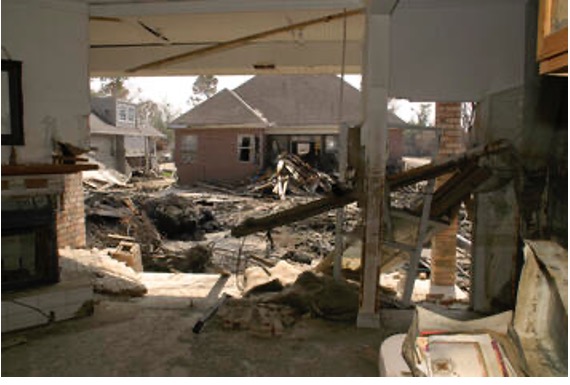CommentsHOUSING CRISIS - Housing is an industry, but it is also where people live, raise families, and stake their future.
Yet increasingly, all around the world, housing has increasingly become just a commodity to be traded, often by foreigner investors, notably from China, as well as by large well-capitalized financial institutions who plan to cultivate a generation of lifelong renters. In the notorious words of the World Economic Forum, “You will own nothing, and love it.” Well, you may not love it, but the first part is coming true.
This shift has been taking place for decades, as the superrich and large investment companies buy up much of the land. In the United States, the proportion of land owned by the one hundred largest private landowners, reports the New York Times grew by nearly 50 percent between 2007 and 2017. In 2007, this group owned a total of 27 million acres of land, equivalent to the area of Maine and New Hampshire combined; a decade later, the one hundred largest landowners held 40.2 million acres, more than the entire area of New England.
In much of the American West, billionaires like Jeff Bezos, Bill Gates, and Ted Turner have created vast estates that systematically make the local population land-poor. Landownership in Europe, too, is becoming more concentrated in fewer hands. In Great Britain, where land prices have risen dramatically over the past decade, less than 1 percent of the population owns half of all the land. On the continent, farmland is being consolidated into larger holdings, while urban real estate has been falling into the hands of a small number of corporate owners and the mega-wealthy. Amidst instability in commodity and stock markets, this trend of big capital investment in housing may be expected to accelerate.
A profound threat to the future of the middle class
The implications of the current land grab are profound, threatening the future of democratic institutions and the middle class. These trends are distressingly common across the higher income countries. The Organization for Economic Cooperation and Development (OECD) reported in Under Pressure: The Squeezed Middle-Class that the future of the middle-class is threatened by house prices that have been growing “three times faster than household median income over the last two decades.” The pandemic drove prices even further, and, in the U.S., housing affordability is at the lowest level since 1989.
On both sides of the Atlantic, large financial institutions like Britain’s Lloyds Bank and BlackRockhave placed multi-billion dollar bets on buying homes for the rental market. In the first quarter of 2021, investors accounted for roughly one out of every seven homes bought, a marked increase from previous years. The popular notion is of a “rentership” society where people remain renters for life, enjoying their video games or attending to their houseplants, never knowing the pleasure of having a real garden or backyard of their own. It might assure a steady profit for the landlord class, but would destroy the dream of ownership for the average person.
High home prices are the key driver of reduced social mobility. Matthew Rognlie, of Northwestern University, found that most of the increased inequality in Western countries was attributable to increased house values. In the United States over the past decade the proportion of real estate wealth held by middle class and working owners fell substantially while that controlled by the wealthy grew from under 20 percent to over 28 percent. In the last decade, high income households enjoyed 71 percent of all housing gains while the shares of middle and lower income families declined precipitously.
Property and democracy
Ownership has long been a critical issue for democratic institutions, from the Greek city-states to Rome to the Dutch Republic and North America. Aristotle saw a large class of middling owners as critical to Athens and its democracy, while warning, correctly, about the dangers of an oligarchy that would control both the economy and the state.
Read the rest of this piece at American Mind.
(Joel Kotkin is the author of The Coming of Neo-Feudalism: A Warning to the Global Middle Class. He is the Roger Hobbs Presidential Fellow in Urban Futures at Chapman University and Executive Director for Urban Reform Institute. Learn more at joelkotkin.com and follow him on Twitter @joelkotkin. This article was featured in NewGeography.com.)





